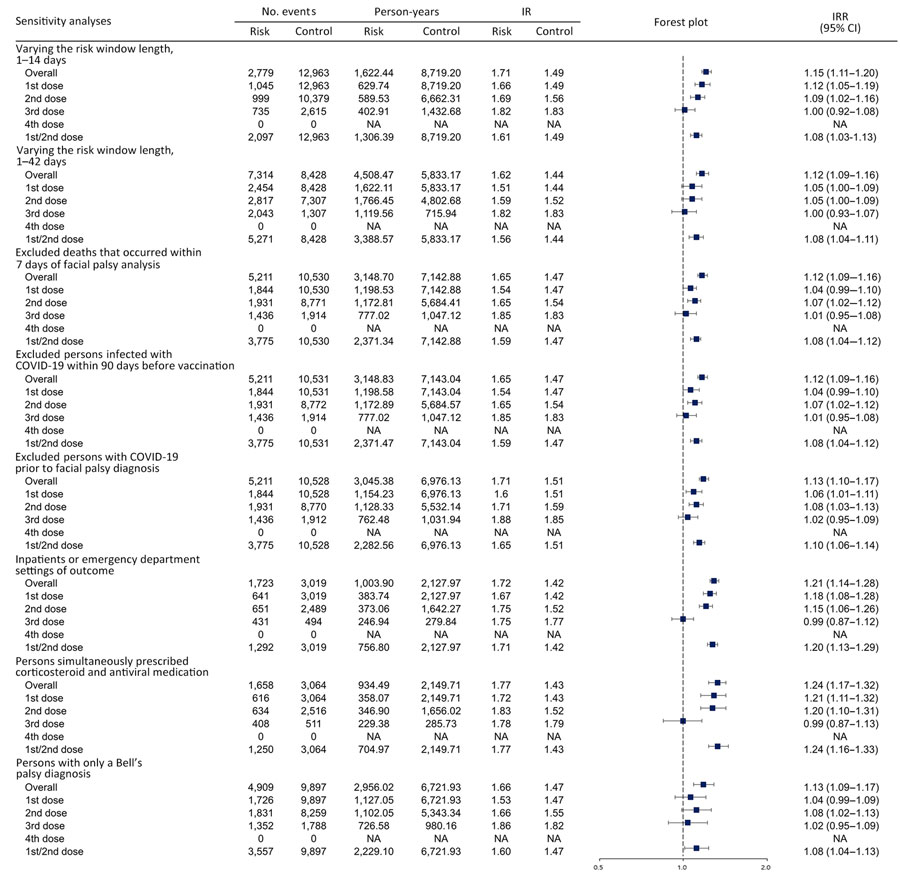Volume 30, Number 11—November 2024
Research
Risk for Facial Palsy after COVID-19 Vaccination, South Korea, 2021–2022
Figure 3

Figure 3. Forest plot of sensitivity analyses of risk for facial palsy after COVID-19 vaccination in South Korea, 2021–2022. Overall risk is shown, as is risk stratified by adverse events of interest. Squares indicate IRRs; bars indicate 95% CIs. 1st/2nd dose indicates a first dose of BNT162b2, mRNA-1273, ChAdOx1 nCoV-19, or Ad26.COV2.S and a second dose of BNT162b2, mRNA-1273, or ChAdOx1 nCoV-19. IR, incidence rate; IRR, incidence rate ratio; NA, not applicable.
1These first authors contributed equally to this article.
2These last authors contributed equally to this article.
Page created: August 28, 2024
Page updated: October 22, 2024
Page reviewed: October 22, 2024
The conclusions, findings, and opinions expressed by authors contributing to this journal do not necessarily reflect the official position of the U.S. Department of Health and Human Services, the Public Health Service, the Centers for Disease Control and Prevention, or the authors' affiliated institutions. Use of trade names is for identification only and does not imply endorsement by any of the groups named above.